
Tire Grabbers
by John Bennett (c) 2011
A Novel by John Bennett. Read by the Author.
Tire Grabbers is the story of the coming of Moloch, a horrific force that mutates out of the Era of the Great Schism and – feeding on spiritual marrow – threatens Mankind’s extinction. And it is the story of the children who challenge Moloch, with their innocence and with an army of mind creatures that they eject into the outer world and call…
Tracklist: PART I: The Awakening (track 1) PART II: Spiritual Limbo (track 4) PART III: Exile (track 11) PART IV: Journey Into Myth (track 28) PART V: The Reign Of Moloch (track 38) Total Time: 1 hour 20 minutes
Mastered at Shofar Sho Good Studios. peytonmusicatgmail.com | This is an MP3 formatted disc.
listen to John Bennett | Tire Grabbers – The Awakening (5 minutes excerpt)
“People who think there is a difference between the past, the present and the future are living in an illusion.” Albert Einstein

“it breathes in and out, it is all lungs and heart and brain, story telling at its best!” – Ann Menebroker, Sacramento, California
“Tire Grabbers is a rambunctious, ramshackle whale of a novel…” – Jim Feast, Evergreen Review
“Tire Grabbers is poetic speculative fiction at its best…” – B.L. Kennedy, Snakeskin Review
“Rarely do post-Joycean novels so boldly create language and confront history…” – David Milholland, President Oregon Cultural Heritage Commission
“The writing is edgy, fast-paced and thoroughly engaging…” – Mark Terrill, Small Press Review
[quickshop:john bennett | tire grabbers:price:16:shipping:0:shipping2:0:end]16 EURO incl. shipment cost word-wide for this audio book as a CD in format mp3
The E-Book version of Tire Grabbers is available by clicking here…
Please Note:
If you’re interested in ordering Tire Grabbers, and you live in the continental U.S.,a cheaper way to do so would be to go directly to the Hcolom/Vagabond web site: http://hcolompress.com/Books.html
Hcolom Press
605 E. 5th Ave.
Ellensburg, WA 98926
Beam Me Up Scotty
Recently I read my novel Tire Grabbers into an audio format in a sound studio. It took weeks.
“We’ll produce it as an MP3,” the Studio Director said. “Less expensive.”
“Good idea,” I said.
“It will be one disc instead of seventeen,” he said.
“Excellent,” I said.
He gave me an MP3 disc to take home and audio proof, and when I stuck it in my CD player, nothing happened.
“It doesn’t work,” I told him over the phone.
“What do you mean?” he said.
“It doesn’t play,” I said.
“It should.”
“Well, I put it in my CD player and nothing happened.”
“That’s because it’s not a CD,” he said.
“What?” I said.
“It’s an MP3 disc. You need an MP3 player.”
“It looks like a CD to me,” I said.
“Listen,” he said. “Put it in your computer and download it into iTunes.”
“What?” I said.
“Then you can play it,” he said.
I did what he told me and fifty files popped up. I had to play them one at a time, so there was no way to test for continuity. Seventeen CDs was beginning to sound like the way to go, and I called the Studio Director and told him so.
“No, no,” he said. “You just need an MP3 player. I’ll loan you mine, come by the studio in the morning.”
He was in the control booth when I arrived, and he signaled thru the glass that he’d be with me in a minute. He was all smiles when he came out.
“Sorry about the confusion,” he said.
“No problem,” I said.
“Here,” he said, and took something out of his shirt pocket the size of a candy bar. “I’ve got earphones, too,” he said.
“What’s that?” I said.
“My MP3 player,” he said.
“Is this some sort of joke?” I said
“What?” he said.
“You can’t get a disc in that,” I said.
“What’s wrong with you?” he said.
“What’s wrong with you?” I said.
We stared at each other across a yawning chasm of technology, his face a mix of impatience and alarm.
“Trust me,” he said. “Remember how I told you to download the disc into your computer?”
“Yes,” I said.
“Well, now you download what’s on your computer into the MP3 player. The tracks will cue each other, it will play with continuity. That’s how it works.”
“How can someone play it in their car then?” I said. “That’s where people listen to audiobooks, in their cars. On their CD players.”
“They burn CDs from the files on their computers,” he said.
“Burn CDs?” I said.
“Yes.”
“It’s too complicated,” I said. “No one’s going to go thru all that.”
“You’re wrong,” he said. “People do it all the time.”
I walked around for a week with plugs in my ears and the MP3 player in my shirt pocket and listened to my fantasy novel about an inhospitable future on a device from that future, and when I was done I sat in the dark smoking and staring out the window at the moon.
“Beam me up, Scotty,” I whispered, and wondered how long it would be before that would be possible.
John Bennett


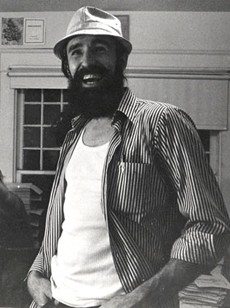

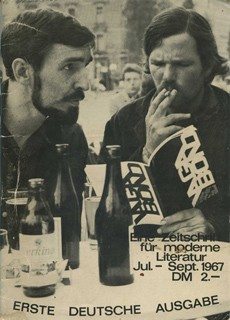


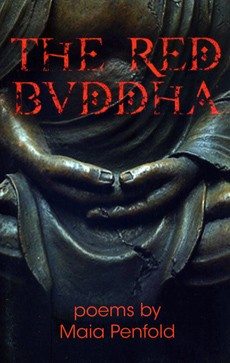
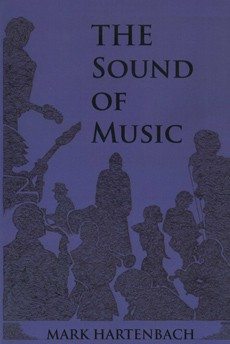


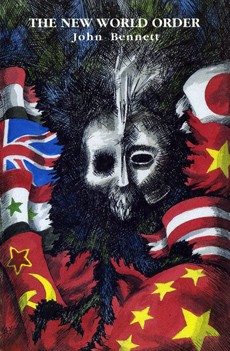

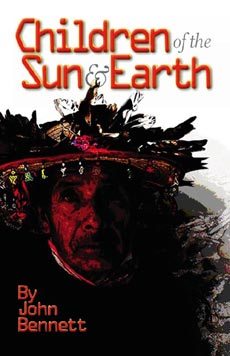


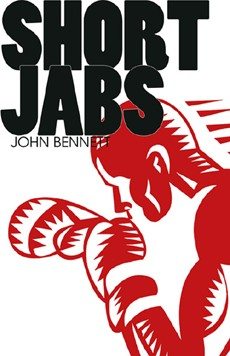


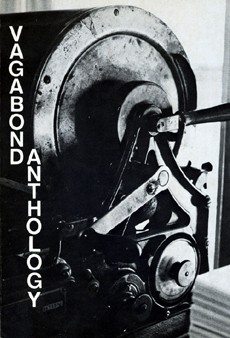
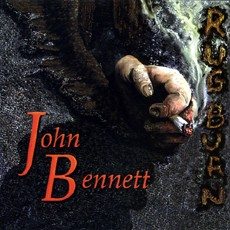
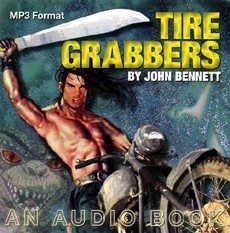



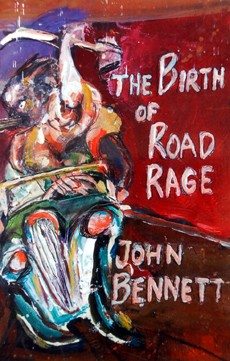

John Bennett’s novel, Tire Grabbers, cannot be paraphrased in our world terms. There is too much madness in his method for that. Certainly, he presents us with a recognisable parallel fictional universe, but one whose parallels exist on the level of resonance rather than direct reference to the world as we know it. Of course there are passages in the book in which he could be describing the world we inhabit, but he keeps these passages within the imaginative parameters of his fictional world. He is both writing about our world and yet not writing about it, and this allows his novel far more prophetic scope than it would otherwise have. Everyone, I think, would recognise the following passage as a description of the world we inhabit:
[p.130]
That describes a phenomenon in our world alright, but it is no less a phenomenon in Bennett’s fictional universe; so it is in no sense an intrusion. These parallels underpin the novel, which is what makes it at times feel frighteningly relevant.
It is not my intention here to give a summation of Tire Grabbers as a novel (i.e., its narrative, plot, characterisation, dialogue, et cetera) from a literary critic’s perspective. What interests me is how the ‘real world’ we inhabit, and which is daily becoming more nightmarish, has filtered through into the imaginative cosmos of the novel. As we have seen, the ‘real world’ is not unrecognisable in the novel–indeed, in places it is all too painfully there–but it is transformed. Bennett is a writer of fiction and has a very clear idea of what that means for the momentum and coherence of his novel.
Moreover, Tire Grabbers is a work of epic dimensions, with its own mythic (cosmological) structure, its struggle between good and evil, its heroes and villains, all of whom engage you as complex characters in their own right.
The book in places borrows from popular culture, although it does so in non-nihilistic and intelligent ways. At other times, literary works like Paradise Lost and even The Iliad come to mind. Beyond all this, however, it is the work’s ‘political subtext’ which interests me. The rest can be left to the aforementioned literary critics.
In the beginning, according to the novel’s brief introduction, human beings live in The Age of Innocence, in which cosmic harmony prevails. (Notice the use of the present tense, which doubles here as the ‘eternity tense’.) This is followed by The Era of the Great Schism, in which Mankind splits into two factions–Hunters, who are locked down in a mind-set called The Hard World, and Dreamers, who develop magical powers that give them sanctuary in a parallel world called The Secret Place. In time the Reign of Moloch emerges, mutating almost willy-nilly out of the strife-torn Era of the Great Schism. This is the mythic background to the struggles which take place in the novel.
Moloch is an autonomous force that feeds on spiritual marrow and threatens Mankind with extinction; a horrific force, rather like Tolkien’s Mordor, I think, though much more cosmic in scope. (The novel is also refreshingly free of the master/servant ethos of Tolkien’s epic.)
Moloch turns people into Drone Zombies, “individuals who are soul dead and stripped of all powers of discernment.” They are “known in The Secret Place as Lethargics.”
Another but far from adequate term for this process might be “dumbing down.” It is what our present civilisation seems to want of its citizens and is secretly aiming for–unquestioning Drone Zombies whose individuality and rebellious spirit have been utterly quashed. Whereas in The Era of the Great Schism diversity was useful, because it was divisive, in The Reign of Moloch only homogeneity matters. Everyone must be reduced to the Same, while Difference becomes an expression of treason.
Thus:
[p.94]
Who cannot see these processes emerging in our society? Bennett may only be projecting his vision onto his imagined universe, but sameness, predictability and control is the name of the game in our world as well. We seem to be headed for our own version of The Reign of Moloch.
The Independent recently ran an article about the surveillance society and police state that is emerging in Britain (and no doubt in Bennett’s own U.S.A.–it’s a global phenomenon). The pretext for this increased surveillance is The War on Terror, but the real underlying agenda is plain for anyone to see who is not willfully blind. The writer in The Independent used the analogy of the frog which–if thrown into boiling water–will do its best to escape. However, if you place the frog into cold water and then slowly bring the water to a boil, the frog won’t know what is happening until it is too late. Likewise, the masses of Drone Zombies remain oblivious as The Era of the Great Schism mutates indiscernibly into The Reign of Moloch.
Of course all this assumes that people are susceptible to such processes of domination and control, that they can be easily fooled and manipulated into abandoning their freedoms. Bennett is in no doubt that they are so susceptible, and how susceptible he thinks people are can be gleaned from the following passage:
[p.77]
In Bennett’s fictional parallel universe, the public’s suggestibility is certainly more marked than it is in our world. Yet there is something very accurate about the way he depicts it. After all, if we doubt that people can be manipulated in this way, we need only think of the ease with which they fell for the nonsense Hitler spouted. People en masse do behave in this way. And it is our awareness of the fact which makes Bennett’s Drone-Zombie scenario seem so frighteningly possible. So that if our world seems somewhat more complex and messy than that in the novel (though he does a very good job of reproducing something of that messy complexity), Bennett has nonetheless hit upon a very important truth about it.
Such truths can make some people despair. It certainly made Orwell despair, which was why the ending of 1984 was so bleak. But Bennett has faith in the potential of people to create new universes on the ruins of old ones. Moloch will eventually be destroyed; it will die once it has devoured all the spiritual resources off which it lives, just as the cancer will die with the body it kills. And once that happens, the creative impulse can begin to emerge and make itself felt again, as it does in the novel’s epilogue:
[p. 356]
Bennett, of course, is right to end up on a mythic and cosmic note such as this. He could not possibly have arrived at such an optimistic conclusion using the resources made available to him by a four-dimensional realistic method, because it would have left him incapable of transcending the world we see in existence around us. Realism is inadequate because it cannot go cosmic and provide us with anything resembling a mythical framework through which we could imagine the possibility of worlds beyond this one.
Before winding up, just a brief word or two about The Secret Place and some of its denizens. It is governed by The Council of Grand Shamans, among whose members are Allah,Christ, Buddha, Krishna, Zeus, Woden, Oya (the stately goddess of the Yoruba), Doubting Thomas and Henry Miller, although the latter is only there in an advisory capacity. (After all, the Gods are not so savvy about the ways of the world that they can do without the advice of a Henry Miller!)
In addition to The Council of Grand Shamans, there is the Ruler of Great Mysteries–the spiritual font of all Creation. The Ruler of Great Mysteries has an alter-ego in the form of The Evil One, whom he created out of boredom. (Moloch, by the way, is a force which threatens to devour even the Ruler of Great Mysteries, along with the Evil One.) There are many other denizens of the Secret Place, too many to list here. But they take an active part in what takes place in the novel, in much the same way as the Homeric gods do in The Iliad, or God and the angels in Milton’s Paradise Lost. Other terms to note are The Gone World and Shanty Talk, but I”m afraid you’ll have to read the novel to find out just what they mean. Likewise Tire Grabbers.
John Bennett’s novel is refreshingly optimistic, but not in any facile or easily come by sense. The author seems to be fully aware that true Creation can only happen ex nihilo, as it were. Not until the parallel universe he describes in fictional terms passes away will a new one emerge to replace it, and this must be so, because as long as the old universe endures, the new will have no room in which to establish a foothold and begin to expand.
Bennett knows only too well what such renewal will mean in terms of what we will have to sacrifice of the old world; but he has not succumbed to Orwell’s despair.
Richard Livermore is a poet and essayist living in Edinburgh, Scotland. He is also the editor of the highly respected literary journal Chanticleer Magazine.